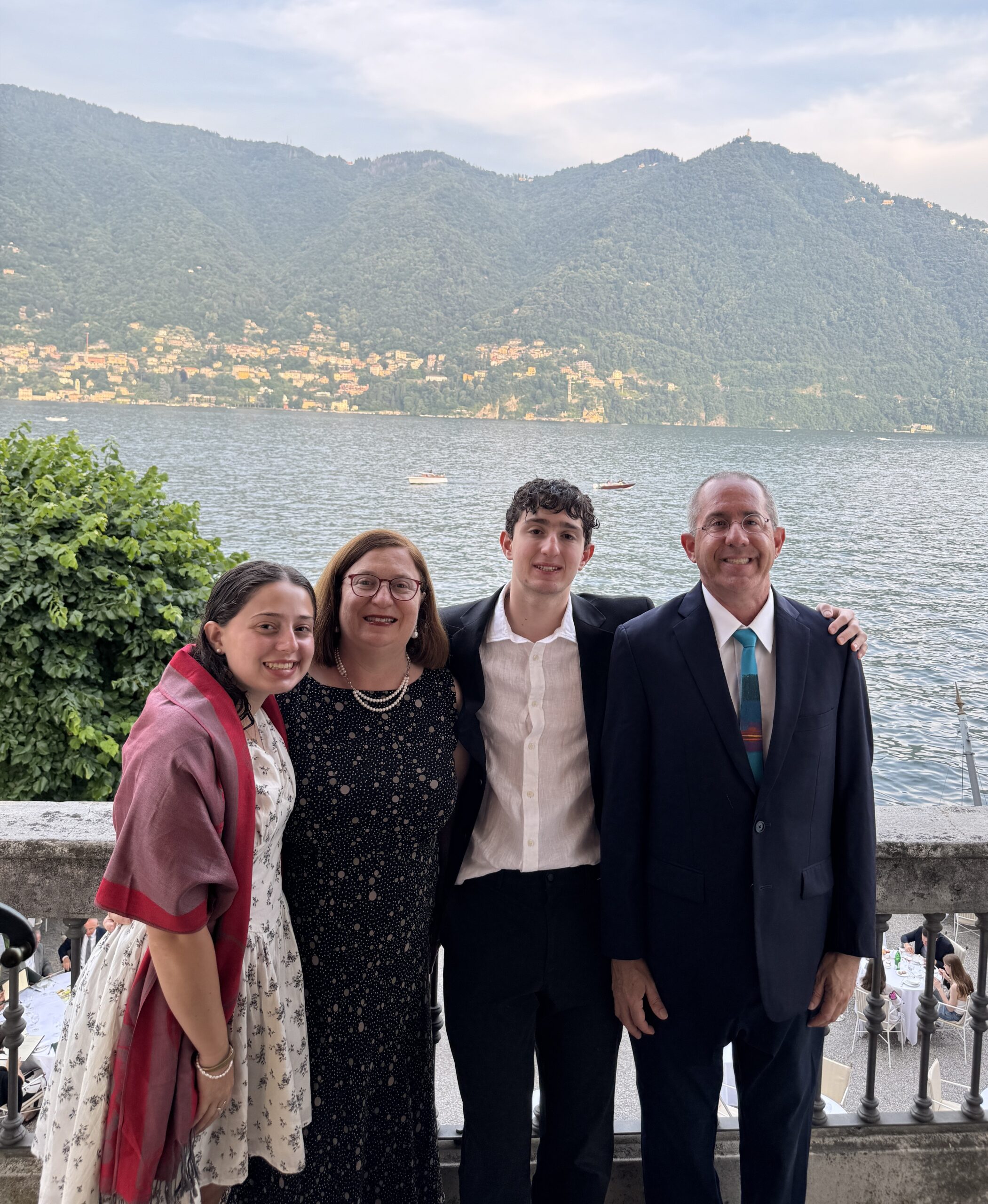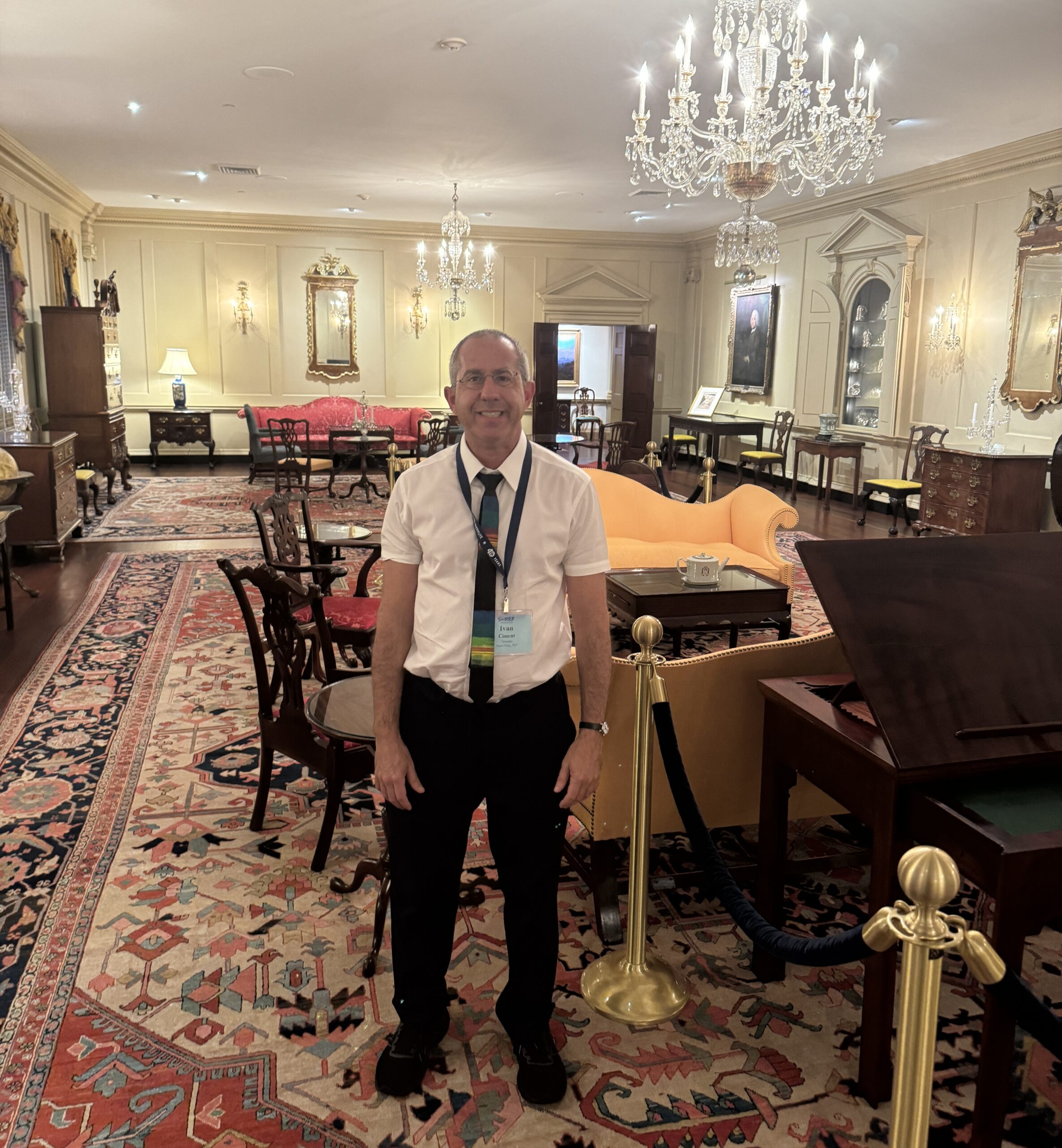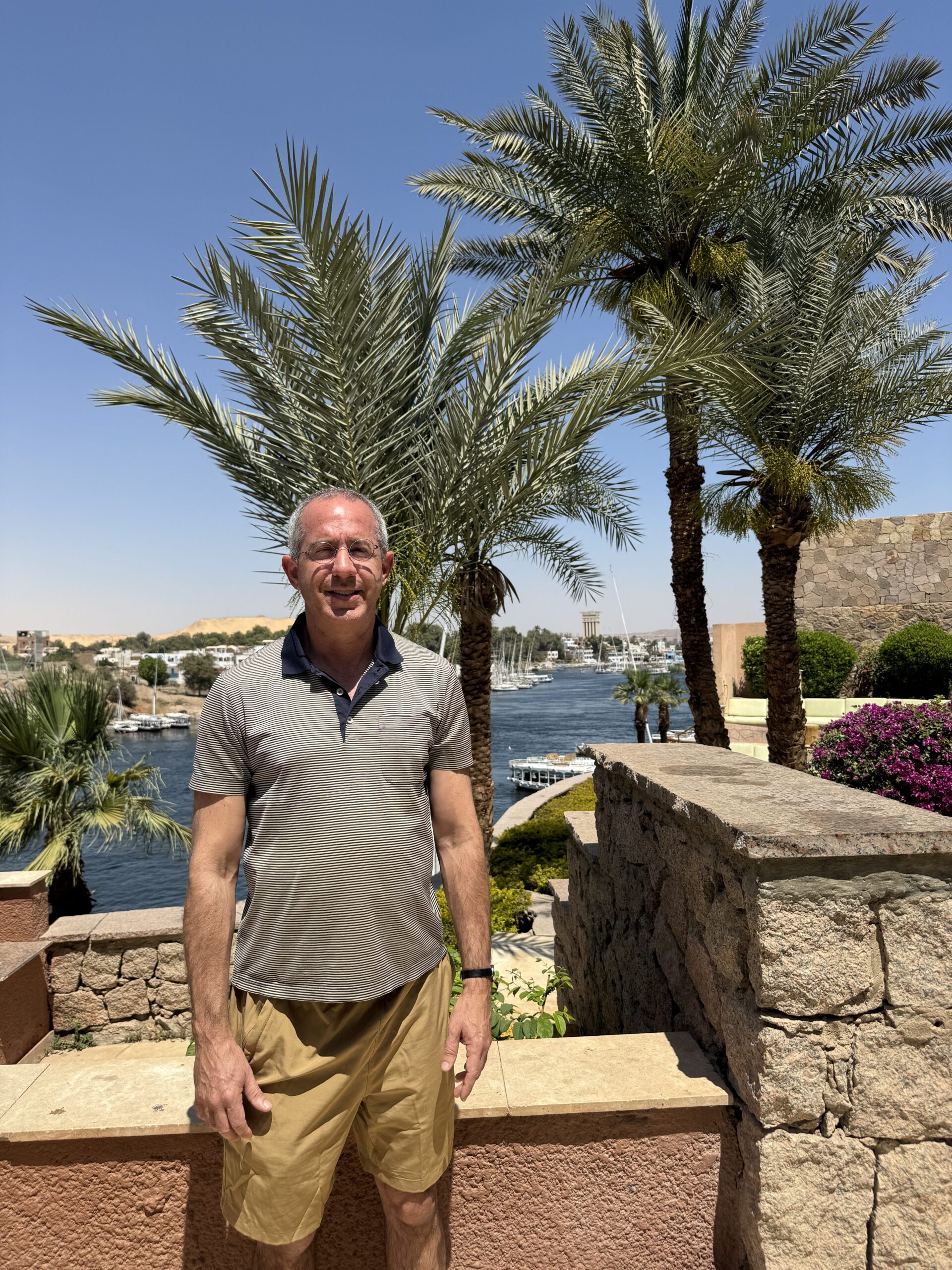Just returned from a very nice trip abroad including a personal visit to Milan, Switzerland (Interlaken, Zurich, Thun and Berne), Paris and Chateau d’Esclimont in France. As well as a family visit to Jerusalem with my parents, brothers and their families to celebrate the 12th birthday of the two first-born nieces of my two brothers. We had a celebratory party at an orphanage in Jerusalem and it was very meaningful. We also participated in my father’s charity project which is to find people in need of home appliances such as refrigerators and stoves, purchase them and deliver them to their homes to see that they actually use them. The notes of the various travels are in a separate article, however notes of my political discussions in Jerusalem follow below.
US — OK, so I made a mistake in buying back equities 2 months ago after the market had recovered 50% of its earlier losses. I sold out again and will probably invest in Brazilian currency which has performed very well over the past 2 years and promises to continue to appreciate as that country performs excellently with everything going for it. Even Australia and Singapore are losing value — I personally believed that emerging markets would track US losses and though I hoped I was wrong, I obviously wasn’t or at least the losses have been not as great. But still nobody likes their portfolio to lose 15-20% of its value. We are obviously in for a recession on a global scale and the simple point is that in the 80’s and 90’s oil was cheap and now it is very expensive and, like it or not, oil drives economies. I won’t repeat earlier months of analysis on this point. For McCain, the economy is a real drag and he is so far having trouble getting his campaign together. For Obama, his repeated flip-flops on issues will be a problem for him as it augments his inexperience and shows that he really doesn’t offer change or solutions to real problems. What I can’t tell you is whether or not people will be so disgusted with the economic state of the country that they vote for him anyway, simply to show their disgust with the current economy, in which case nothing else will matter.
Energy — The recent Economist survey on this subject is comprehensive but inconclusive. Clearly though, this is the new craze of investment. People are out there trying to figure out solutions because they know that we can’t simply conserve our way out of this problem. World demand is rising and the solution is to figure out how to provide alternate forms of energy at a more reasonable cost. The auto manufacturers are confirming that habits are indeed changing and that people are moving toward more fuel-efficient cars and are not driving as much, although in real terms the percentage of people’s budget on petrol in the US is still less than it was during the last oil shock of 1980, so some of the hysteria is irrational. But taken against the housing crisis, the stock market, inflation, and recession — all at the same time — the high price of energy has threatened the entire economic order.
Airlines — Now they want $150 change fees on tickets; JetBlue even takes $100. And the 1 year rule that allows you to take your credit balance on a cancelled flight starts from the date of the original purchase, not the date of the flight, so if you bought your ticket 8 months in advance and then cancel, you have 4 months to use your credit. It also sucks that if you bought your ticket 8 months in advance and the airline cancels the flight (something that is increasingly happening), you have to go and buy a new ticket at the higher price if you don’t like the alternative offered by the airline. For a family of 4, it doesn’t pay anymore to travel by plane with $600 change fees. On the other hand, it is sort of a risk-spreading thing; if they don’t charge for change fees and baggage, they just have to jack up the ticket prices for everybody.
International Conflict Resolution — An interesting article in the Economist notes a study that 92.5% of conflicts during the past 15 years were resolved by negotiations and that only 7.5% went to war and that much of these conflicts were within countries. Much credit is given to international conflict resolution organizations run by the private sector such as CHD, a Swiss-based organization of mediators. This is something to watch and it is interesting that it parallels the alternate dispute resolution statistic inside the US whereas over 90% of disputed matters are resolved outside of trials.
Iran — This is why the Israelis will be around long after the mullahs are gone. Check this out —
http://www.haaretz.com/hasen/spages/991478.html Israelis make fun of Iranian president with a great tv commercial.
Israel — Here are my notes from 4 discussions during my visit to Israel. My own opinion is that those who know aren’t saying and those who are saying don’t know. Something is in the works but I don’t know what. What about Iran, you ask? It’s funny — people in Israel believe that the fact that they are leaking all kinds of stories about rehearsals for an attack against Iran means that they won’t attack but instead are doing what they do in the Middle East before they negotiate, just like the saber rattling earlier this year between Israel and Syria before they announced they were negotiating with each other. But my own feeling is that maybe that’s what the Israelis want you to think, although usually when they attack they give you no hint that an attack is coming. I’m really out on this one but I’ve come to decide that the Israelis are capable of attacking the Iranians, that it will be in cahoots with the Americans and others, and that the Iranian response will be much less than their bark. The country is looking pretty busy and there is a lot of construction and new roads; despite $9 a gallon petrol the roads are full of cars. An investment banker told me that the doo-doo will hit the fan next year when many convertible bonds backed by leveraged real estate in Eastern Europe come due and many public companies will default on their bonds because of the tightened credit markets. Others feel that the companies will simply continue to do well. I am not invested in any Israeli companies and my company in particular hesitates to do business with Israeli clients because they are lousy payers, so I have no exposure there. The influx of tourists have, along with the depreciated dollar, jacked up the cost of living and the prices of being there tremendously and I don’t find a lot of quality there for the money. I personally wouldn’t mind a bit of a downturn in tourism there unless the infrastructure picks up to be able to absorb it better. Right now it’s a huge traffic jam everywhere and I recommend entering and exiting the country at night and to use the VIP service at the airport to go through passport control after my own 45 minute wait in line and no fast-track available for premium passengers. Tel. 972.03.973.1314 to book it at a cost of $83 USD.
Israelis are investing in tourism infrastructure such as hotels because they think there will be sustained peace, meaning the absence of hostilities that ruin tourism. That doesn’t mean they think the ceasefire with Hamas will last or that they will make any deals with Abbas, but that any fighting won’t interfere with business. The Lebanon war of 2 years ago didn’t really interfere with the economy.
Oded (analyst and lecturer) — Ceasefire is good as long as it lasts — why complain about it? It will probably last a long time. Olmert is a serious guy doing an excellent job. Hamas will lose power as it basically made the ceasefire out of weakness and the Arabs within know it, despite the PR that says the Israelis did it out of weakness. Egypt is the biggest concern to stability, not Iran. Nobody knows what comes after Mubarak who has done nothing for Egypt all these years. If Gaza destabilizes and Egypt falls, Israel will take it back and half of Sinai. France, Germany and the US all visit Israel as part of the preparations against Iran and the new US military commanders reflect Bush’s view of the world and his plans viz. Iran thus sidelining Gates and Rice with an attack expected later this year. India will deal with a destabilized Pakistan; Indian military advisors are all over Israel dealing with Israelis trying to plan for whatever has to be done with Pakistan. Either McCain or Obama is OK. Disagrees with those that feel that rich Arabs with petrodollars is bad for the US; the Arabs and Chinese invest their profits into America and basically recirculate the money and even if they buy companies they need Americans to run them. The US is smart with Iraq because in the long term Iraq and not Saudi will be the #1 world producer and the US is sidelining all the others and grabbing territory for their own companies. Jordan’s king may have to make a move someday and get off the comfortable fence. Hamas and Syria both sue for peace; their people have CNN and internet and see that they want a future like everyone else has. Suleiman in Lebanon will turn on Hizbullah in 2-3 years. The Arabs will never make economic progress — even in the Gulf it’s all foreigners running everything. To beat Iran, just knock out a few of the military installations; no real response will be forthcoming. The Syrians didn’t do anything last year when the Israelis knocked out their plant and the Hizbullah in Lebanon has very little capability, despite the fear-mongering of those looking for increased military budgets. Olmert will stay in office indefinitely; nobody wants Bibi, Barak is only good at doing wars and he knows it (and sucks at doing peace), and Livni is a mouse, a nothing. Gilad Shalit is Hamas’s insurance policy on its leadership, but if they break the ceasefire Israel will take out their leaders. Barghouti in prison is a nothing, and there is no real Fatah or PLO in charge of the West Bank. It is all run by clans. The people in Gaza are Sunnis and they don’t want Iran trying to turn them all into Shiites and ruling them via Hamas or anything else.
Mohammed (jurist) — Hamas is pragmatic; they will keep the truce even if Israel occasionally violates it. Syria wants peace too. If Israel attacks Iran, it must do so with allies, not by itself. Mediation in the Middle East vs. the West — in the Middle East, the mediator comes with a solution and tries to get both sides to accept it. In the West, the mediator shuttles between the two sides trying to get them to compromise. This explains Western failures here — the Arabs want the West to impose a solution like Qatar did in Lebanon and the Israelis want the Americans to help facilitate direct negotiations between Israel and the Arabs. Hamas might get the same deal from Israel as Abbas but the Arabs will accept it from Hamas but not from Abbas. Israel should let Hamas and Fatah make a unity government and give it some grace. It will take time to prepare the public for peace because Hamas has had its rhetoric for so long but in truth the leadership are more pragmatic than the rhetoric so far and they are looking to figure out how to climb down from their tree, but it will take time. Israel should free Barghouti and Kuntar and clear the decks with prisoners with the Arabs and make a big statement that everything is from here on out zeroed out. The Israelis were taken prisoner by Lebanon in 2006 because Kuntar had not been previously released. In Egypt, the Islamic brotherhood is similar to that of Turkey and this means that Egypt after Mubarak will not necessarily be fanatic. Iran is meddling in Iraq and Egypt in its religious factions such as the Al-Azhar academy, and there is a need to keep them in check.
Gury (cousin) — Olmert’s former Likud friends went against him due to his proposal to give up land in the territories — all the people in the Likud did the same things with money.
Gershon (peace activist) — Hamas is not pragmatic and they are not worth talking to. They punish anyone who talks to Israelis. They do want the ceasefire. Livni has met with Abbas at least 70 times and though they have put out papers in great details they have never pulled out a map and started drawing lines. Talks with Syria are still very preliminary. Interesting projects with Turkey on water and new technology to import water at a commercially practicable price (the cost had earlier knocked out such projects).







